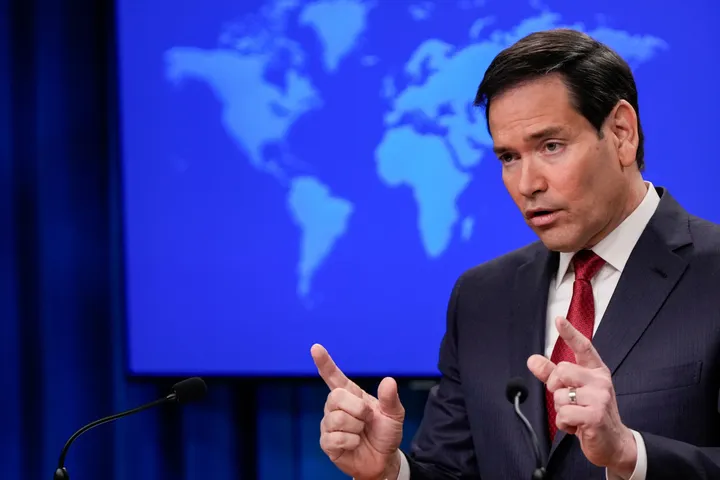SpaceX is developing a massive rocket and capsule as part of an ambitious plan to establish a Mars colony by carrying 100 humans at a time, the company chief and tech billionaire Elon Musk said on Tuesday.
The first flights would be expensive but the cost would be brought down over time to $100,000 to make it affordable for anyone who is interested to embark on an adventurous space journey to Mars, Musk said.
Speaking from a stage under a large globe of Mars while unveiling his futuristic plans at the 67th International Astronautical Congress, Musk showed his vision for a giant rocket that would propel people to the Red Planet "in our lifetime."
"We need to go from these early exploration missions to actually building a city," he said to an overflow crowd at an expo centre in the western Mexican city of Guadalajara.
Musk showed a futuristic video depicting his concept of an interplanetary transport system based on reusable rockets, a propellant farm on Mars and 1,000 spaceships on orbit, carrying about 100 people each.
The spacecraft would have a restaurant, cabins, zero-gravity games and movies.
"It has to be fun or exciting. It can't feel cramped or boring," he said.
Musk later told reporters he was "optimistic" that the first human mission could leave Earth in 2024 and arrive on the Red Planet the following year.
Before that, SpaceX plans to send an unmanned Dragon cargo capsule to Mars as early as 2018.
The South Africa-born Canadian-American entrepreneur said the plan would require a "huge public-private partnership," but he did not announce any alliance with a government agency.
‘Very dangerous'
"I think the first trips to Mars are going to be really, very dangerous. The risk of fatality will be high. There is just no way around it," he said.
"It would basically be, 'Are you prepared to die?' Then if that's ok, then you are a candidate for going."
While SpaceX was hit by a setback on September 1 when its Falcon 9 rocket, after several successful missions and vertical landings, exploded on the launch pad during a test in Florida, Musk said "this is just a small thing on a long road."
SpaceX is not alone in aspiring to travel to Mars.
The US space agency NASA, which is studying the effects of long-term space flight on the human body, has announced its own plans to send people to Mars by the 2030s.
Blue Origin, a company founded by Amazon boss Jeff Bezos, also envisions a Mars mission, but decades from now.
Big challenges ahead
Experts warn that reaching Mars — 225 million kilometers (140 million miles) from Earth on average — and living there requires major engineering feats and a massive budget.
John Logsdon, professor emeritus at George Washington University's Space Policy Institute, said Musk's presentation was "long on vision, short on detail."
Musk did not explain in detail how he would get the "billions of dollars that would be required to put the vision into reality."
The plan also faces technical challenges, such as refueling in orbit, which has never been done, and building fuel depots on Mars.
























